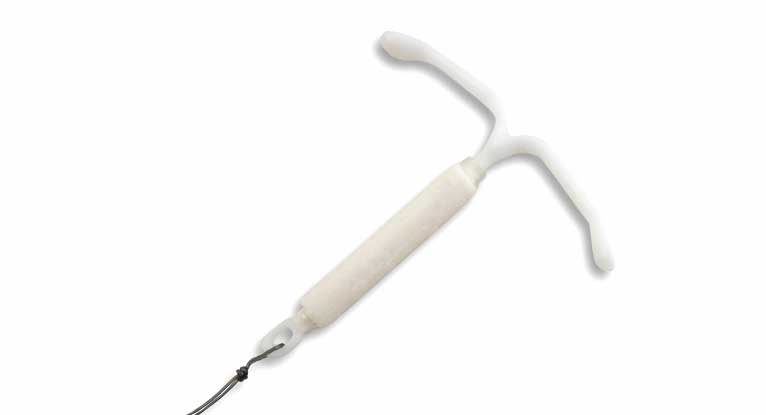What is the Mirena IUD?
A hormone-releasing intrauterine system, Mirena (levonorgestrel-releasing intrauterine system) claims to prevent pregnancy for up to six years, according to its manufacturer. In addition, an IUD contraceptive can be used for Mirena’s treatment of heavy periods for up to five years.

It is most likely that the IUD’s hormone prevents pregnancy by:
- By thickening the cervical mucus, preventing sperm from entering the uterus.
- Because sperm movement is restricted, the fertilization of an egg is more complicated.
- Do not allow an egg to attach to your uterus because its lining is appropriately thinned.
It’s unknown exactly how these actions work together to prevent pregnancy.
Since 2016, there has been a 900 percent rise in using intrauterine devices at Planned Parenthood. The IUD is nearly foolproof and has a success rate of 99 percent. For a period ranging from three to twelve years after implantation, it is effective in preventing pregnancy. There is no need to keep track of when you take a pill each day. With the use of the IUD contraceptive, menstrual cycles are reduced or eliminated.
It’s like something out of a fairy tale. Right??! Indeed, that’s what I’ve been told. But, to put it another way, this is entirely untrue.
Here are the most common Mirena IUD side effects
- headache (√)
- depression (√)
- low libido
- nervousness (√)
- acne (√)
- skin disorders
- weight gain (√)
- pain (√)
Why I Decided to Get My Mirena IUD Removed
Here, I’m using the word “decided” very loosely. Even though I knew we were done, I didn’t want anything permanent. This option sounded great when my doctor explained it to me, so I decided to give it a try. I had terrible cramps and could not get out of bed that day, so writing was challenging. It hurt so much that I vowed to myself that I would never do it again. However, after a few days, I began to feel better.
After a few months have passed, let’s look ahead. For months, my husband told me I’d become snappier and grumpier. I didn’t believe him, but he was right. I was exhausted because I was caring for a newborn, and we all know how crucial sleep is. I, of course, was irritable. But things got even worse after that. Negative thoughts and emotions plagued me like many bad feelings and thoughts. The panic attacks kept me awake at night, and I could not get any rest.
It was difficult for me to carry my baby without imagining that I would drop her or do something much worse than that. When my child was nine months old, I finally saw a doctor and was diagnosed with postpartum anxiety.

Also, I was constantly overcome with emotion. What kind of feelings do you get when you’re about to begin or pregnant? You know, that emotional. I am weeping for profit. A nap is also on my mind because I’ve been so exhausted. I thought the problem stemmed from having two young children for a while. But now I can’t figure out why. It’s a good night’s sleep; we both get enough rest to function normally.
Morning Bootcamp gets me pumped up and ready for the day, so I should have plenty of energy to spare. Sherry Ross, M.D., an ob-gyn, women’s health expert, and author, says,
If you mess with your hormones, and you have the potential to mess with your mood. How exactly the Mirena changes your mood, and how intensely you feel the change, depends on your unique body chemistry.
Some women report feeling more even and stable while others report an increase in depression and anxiety, she says. It might be worth it to keep careful notes after the insertion, tracking any changes in your mood. Talk to your doctor if you feel like it’s affecting your mental health.
Breakouts
I noticed that I was breaking out at the same time. The occasional pimple had occurred to me before, but nothing like this. Acne scarred from deep cystic inflammation. It was humiliating and painful. It was repulsive to me! I was unable to keep it under control at all. When I visited my dermatologist, she asked if I was using an IUD immediately. All hormonal IUDs are progesterone-based, which has been linked to androgens and can lead to acne breakouts in some women.
Now that I’m taking Mirena, I’m experiencing the worst acne of my life. My doctor prescribed an antibiotic and a topical lotion to alleviate the discomfort. But unfortunately, all hormonal IUDs are progesterone-based, which has been linked to androgens and can lead to acne breakouts in some women.
“Hormonal IUDs can cause acne,” says cosmetic dermatologist Dr. Michele Green.
Acne is a well-known side effect of IUDs like Mirena, Skyla, and Liletta.
You may be more susceptible to hormonal breakouts if you are already prone to them. This is especially true even if you’ve had breakouts before your period. Cystic acne on the chin and jawline is another common complaint.
Severe bloating
My hands and feet were tingling, and my stomach looked like I was six months pregnant due to another side effect: severe bloating. It’s unbearably sore.
A rise in water retention is linked to hormonal IUDs, according to Singlecare. It is possible that progestin can cause water retention, which can lead to bloating and weight gain. Any water retention will likely go down three months after insertion, but the amount of weight gained will vary from patient to patient.
Water retention is more common in women who use hormonal IUDs.
Lower belly bloating is a common complaint that Dr. Ross deals with. While it’s a common experience for many women, this unpleasant side effect isn’t on the official list of possible side effects. Due to progesterone’s natural muscle-relaxing properties, your digestive system may be a little less sluggish. This isn’t anything to be concerned about on its own. Call your doctor if you’re having a lot of pain or severe constipation, she adds.
Cramps and breakthrough bleeding.
I also experienced severe cramping and bleeding and occasional clots—no idea when or how often I was due for my period. Because I bled so suddenly, I had to throw out all my underwear. Even though Mirena’s “benefits” include light or no periods, it made me miss the predictability of my period.
Getting used to an IUD may take several months. Breakthrough bleeding or spotting is more common during this time. Breakthrough bleeding is common for women who use hormonal birth control, significantly if they have recently changed contraceptive methods.
It is a contraceptive medication called progestin that is released by hormonal IUDs. Both types of contraception can disrupt the menstrual cycle, leading to unexpected bleeding. If you have a hormonal IUD, such as Mirena, you may experience heavier and more irregular bleeding for the first three to six months.
Weight Gain
I’ve been following a strict diet since January. At first, I was doing great. I was thrilled to have lost about 15 pounds. I finally got back to my pre-pregnancy weight, but my body looked and felt completely different. Remember that belly bloat I mentioned earlier? Yep, I still looked pregnant. Nobody seemed to notice that I had shed a few pounds. That part confuses me to no end. All of it was coming from my tummy? Initially, I thought you had shed pounds all over your body, not just in a single area. My stomach shrank, but not nearly as much as it did before I became pregnant.
My weight loss after IUD removal slowed to a halt. No matter how hard I tried, I could not lose a certain amount of weight. I was still doing my home workouts and eating as I was supposed to. I even did an entire six-week Isagenix challenge. Scale remained stationary. I figured something had to be done about it. I need to tighten up my rules even more. The Fit Body Bootcamp trial period began this week, and I’ve already signed up for another six weeks. I became even stricter with my dietary requirements. After shedding a few pounds, I was inspired to continue Bootcamp on a year-round basis.
What do you think? Despite attending Boot Camp for almost four months, there has been no progress in my weight loss. But, as far as muscle gains and strength go, that’s a topic for another day.
According to my research, Mirena is associated with weight gain. Although I wasn’t gaining weight, I wasn’t losing it either. This is because progestin hormones are used in Mirena and other hormonal IUDs instead of estrogen, leading to weight gain and hair loss.
According to experts, any weight gain from an IUD is likely not due to an increase in body fat but rather an increase in water retention. Progestin may cause bloating by increasing water retention, which can add about 5 pounds. Any water retention will likely go down three months after insertion, but the weight gained will vary from patient to patient. Progestin, a hormone that causes water retention and bloating, is primarily blamed for this weight gain.
Mirena IUD removal
The last time they looked for it was three and a half weeks ago, and they still couldn’t find it. Yes, you read that correctly. It was nowhere to be found! Regardless of what happened, I feel like they jolted some hormones right out of it and into my system when they tried to find it. I’ve been experiencing cramping, bloating, emotional turmoil, exhaustion, and breakouts, all of which I’ve previously experienced as a result of my period, but on a much higher level.
As a result, they had to numb me somehow because they couldn’t find it. However, I was looking for a way to get it off my chest and waiting to see if the dreaded Mirena crash occurred after today’s successful procedure.

What’s the Mirena crash? Mirena removal side effects
Of course, you risk experiencing symptoms similar to the crash if you stop using hormonal birth control, not just IUDs. First, you notice a sudden shift in your hormone levels. Your cervical mucus will thicken due to Mirena’s minor release of synthetic progesterone, making it more difficult for sperm to attach themselves to your egg(s).
Symptoms of the Mirena Crash
After removing an intrauterine device, it is not uncommon to experience one or more symptoms or side effects. This is especially true following the removal of hormonal IUDs. After the removal of the IUD, some of the most common complaints from women are:
- Nausea
- Soreness of the breasts
- Pain during sexual intercourse
- A reduced sexual drive
- Irritability
- Depression
- Runaway emotions
- Fatigue
- Anxiety
- Disinterest in many everyday activities, and
- Insomnia
How Long Does the Mirena Crash Last?
The duration of the Mirena crash is unknown. A lot goes into how quickly your hormones can get back on track after an illness or injury. The sooner, the better. A few days is all it takes for some women, while others say it lasts for weeks or even months. There’s no way to tell, at least not from a medical standpoint. You may experience a crash if the level of hormones within your body changes suddenly.
Wrapping Up: Weight Loss After IUD Removal
Even though Mirena may sound like the ideal birth control method, it may not be for everyone. However, you should know what to expect after removing your IUD. Make sure this is the method of birth control that is right for you by researching and asking around. Consider each stage of the procedure, including the insertion, potential side effects, the IUD removal, and the subsequent crash. Why bother? I don’t believe so, but the choice is yours.
Frequently Asked Questions (FAQs)
Q: How will my body change after IUD removal?
A: In most cases, removing an IUD is a simple procedure. Your menstrual cycle before getting an IUD, as well as any underlying fertility issues, can all influence how long it takes for your body to return to “normal” after an IUD has been removed. “Your menstrual cycle will resume at the time you typically expect if you have a non-hormonal IUD (Paragard),” Dr. White says. It is possible to try to conceive immediately after the IUD has been removed because Paragard does not contain hormones, and therefore Dr. White believes that you would be ovulating on a monthly basis (if you have monthly cycles).According to Dr. White, a hormonal IUD may cause more menstrual irregularity after removal.
However, she says your menstrual cycle will return to its normal rhythm after a few weeks to a few months. According to Dr. White, pregnancy after hormonal IUD removal is possible because some women continue to ovulate while the IUD is in place.
A 2018 study published in the journal Contraception and Reproductive Medicine found that the removal of an IUD does not affect a woman’s fertility, regardless of whether she used a copper or hormonal IUD.
Q: Does IUD cause weight gain?
A: Many women who use an intrauterine device (IUD) do not gain weight. About 5% of patients who use hormonal IUDs report gaining weight with copper, nonhormonal IUDs. It’s possible, but not likely, that women using the hormonal IUD Mirena will gain weight.
According to Dr. Madison, many people believe that these products cause weight gain, but this has not been proven. After 12 months of continuous use, “there was no difference in body weight or composition among [IUD] products.” So even though you may gain a little weight after getting an IUD, it should go away.
Q: Did Mirena cause weight gain?
A: There is no risk of weight gain associated with copper IUDs because they do not use hormones. Levonorgestrel, a progestin hormone, is used in Mirena. As a result, some Mirena users may experience weight gain. OB/GYN Henry Dorn claims that only 5% of IUD users put on weight. It’s almost always water weight if they do it.




